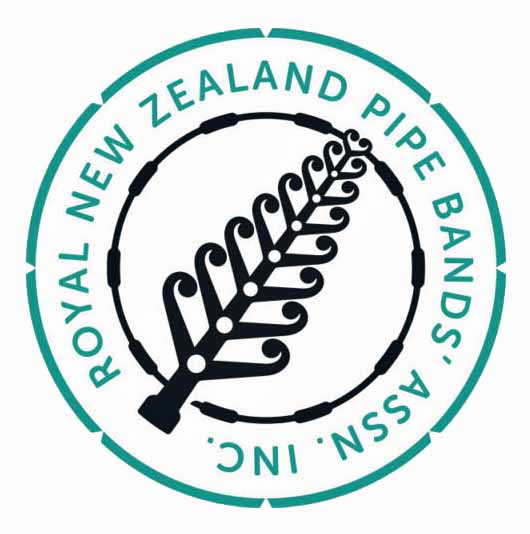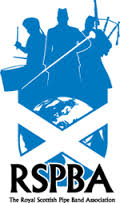RSPBA reviews gradings of well-established New Zealand Grade 1 bands “by request”
 According to public statements by the Royal Scottish Pipe Band Association, long-established New Zealand Grade 1 bands Auckland & District and Manawatu Scottish have had their grading status “approved,” allowing them to compete in the top grade at the 2023 World Pipe Band Championships.
According to public statements by the Royal Scottish Pipe Band Association, long-established New Zealand Grade 1 bands Auckland & District and Manawatu Scottish have had their grading status “approved,” allowing them to compete in the top grade at the 2023 World Pipe Band Championships.
Each band was reportedly surprised and confused by the request from the world’s most powerful pipe band association to provide a current roster of playing members, along with the band grade with which each player most recently competed.
 The public statement was signed by RSPBA Music Board directors Paul McAndrew and Sharon Smith on behalf of the Music Board Standards & Gradings Group. A search of the RSPBA’s website produces neither a list of who sits on the Music Board Standards & Gradings Group nor background information on directors, officers or administrators with the association.
The public statement was signed by RSPBA Music Board directors Paul McAndrew and Sharon Smith on behalf of the Music Board Standards & Gradings Group. A search of the RSPBA’s website produces neither a list of who sits on the Music Board Standards & Gradings Group nor background information on directors, officers or administrators with the association.
Auckland & District and Manawatu Scottish made it known no later than February 21st that they intended to compete at the 2023 World Pipe Band Championships. Each band competed throughout the 2022-’23 Royal New Zealand Pipe Bands Association’s (RNZPBA) competition season, including at the 2023 New Zealand & South Pacific Championships, where Auckland & District and Manawatu Scottish placed third and second, respectively.
It is unknown whether the New Zealand & South Pacific Championships winners, Canterbury Caledonian Society, were also asked to submit a roster list.
In December 2022, Manawatu won the aggregate award with straight first-place rankings in both events in the Grade 1 Jenny Mair Square Day competition in Palmerston North, New Zealand. Canterbury Caledonian and Auckland & District respectively placed second and third.
Apart from the RSPBA, pipe band associations uniformly practice grading reciprocity and respect the grade assigned to bands by their home organization when they travel to competitions run by a recognized sister association.
The RSPBA formally recognizes the world’s established associations, including the RNZPBA, as officially affiliated.
“The RSPBA took it upon themselves to reconsider the grading . . . regardless of home association grading, track record and form. All seems very unnecessary”
“They should respect the [gradings] of the home associations,” said a member of an antipodean pipe band who spoke anonymously.* “The RSPBA took it upon themselves to reconsider the grading . . . regardless of home association grading, track record and form. All seems very unnecessary.”
The RSPBA has routinely taken it upon itself to assess the grading of bands they categorize as “overseas.” Perhaps the most well-known examples were when the association re-graded Eastern United States Pipe Band Association members City of Washington and the Stuart Highlanders. The RSPBA in 2017 also assigned the Peel Regional Police to Grade 2, with the band still having Grade 1 status by its home association, the Pipers & Pipe Band Society of Ontario.
“I found it strange to review the grading of a band that hadn’t been downgraded by its own association,” said someone close to the RSPBA who also spoke on condition their name is not used. “If I had to guess, I would say it was done because the people who made the decisions have no clue what the rules are regarding such things.”
RNZPBA President Iain Blakeley declined to comment on the matter. The RSPBA has not responded to a request for comment.
“We remain committed to upholding the values of sportsmanship, camaraderie, and musical excellence that are at the core of the pipe band community.” – Adam Michie, P-M Auckland & District
It is unknown who or what organization made the “request” to review the grading status of the two New Zealand Grade 1 bands.
* Why do we use anonymous sources? In the politically fraught and hyper-sensitive world of competitive piping and drumming, it is extremely difficult to find active participants to speak on the record for fear of retribution in competition to them or their band. We wish this were not the case, but it’s an unfortunate reality. The use of anonymous sources is sometimes crucial to the news. But we recognize that it strains our most valuable and delicate asset: our trust with readers. Granting anonymity allows us to reveal the opinions and perspectives of those directly involved to provide important context to the story. When we reach out to trusted sources for their input, we encourage them to put their name to their words but make it clear that, if they so choose, we will not disclose their identity.







NO COMMENTS YET